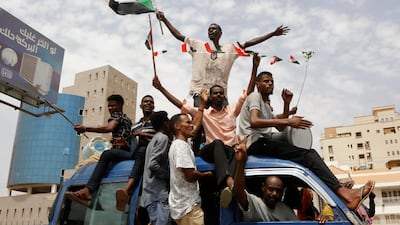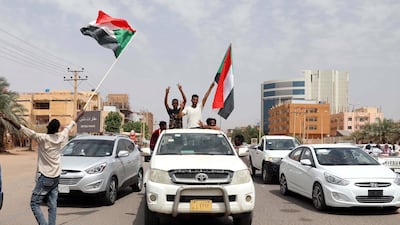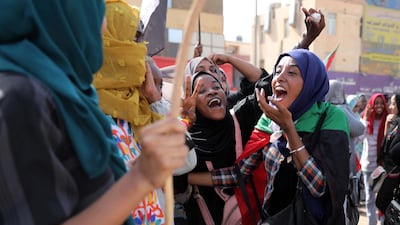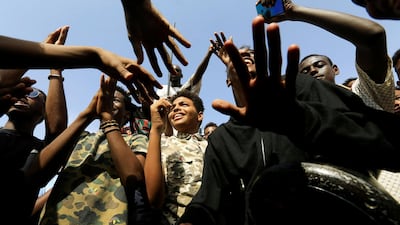Sudan’s ruling military council and a coalition of opposition groups have reached an agreement to share power during a transition period until elections.
The two sides agreed to establish a sovereign council with rotating leadership for at least three years, African Union mediator Mohamed Hassan Lebatt told a news conference.
They will also form an independent technocratic government and will launch a transparent, independent investigation into violent events in recent weeks.
The deal was brokered after two days of talks brokered by Ethiopian and African Union mediators.
"The two sides agreed on establishing a sovereign council with a rotating military and civilian (presidency) for a period of three years or little more," African Union (AU) mediator Mohamed El Hacen Lebatt told reporters.
UAE Minister of State for Foreign Affairs Anwar Gargash welcomed the "promising political transition" and said the Emirates would stand with Sudan through good and bad times.
In a statement, the Ministry of Foreign Affairs and International Cooperation affirmed the UAE's firm support for any measures taken by Sudan to preserve its security and stability and achieve prosperity for its people.
Thousands of civilians took to the streets in the capital Khartoum in celebration when the news broke.
The agreement ended several months of political deadlock following the ousting of former president Omar Al Bashir by generals in April.
General Mohamed Hamdan Dagalo, deputy head of the Transitional Military Council said he wanted to "reassure all political forces, armed movements and all those who participated in the change from young men and women … that this agreement will be comprehensive and will not exclude anyone."
Gen Dagalo's Rapid Support Forces are accused of being behind the recent killing of some 100 protesters at a sit-in against the military council.
Leaders from the umbrella protest movement, the Alliance for Freedom and Change, said later on Friday that the final agreement could be signed next week in the presence of regional heads of states.
Omar Al Degair, a figure in the Forces for Freedom and Change, which has been at the forefront of civil disobedience against military rule, said: “We hope that this is the beginning of a new era.”
While UN chief Antonio Guterres called on "all stakeholders to ensure the timely, inclusive, and transparent implementation of the agreement and resolve any outstanding issues through dialogue", his spokesman said.
Saudi Arabia's foreign ministry hailed the deal, which it said could pave the way for "a new phase of security and stability" for Sudan.








